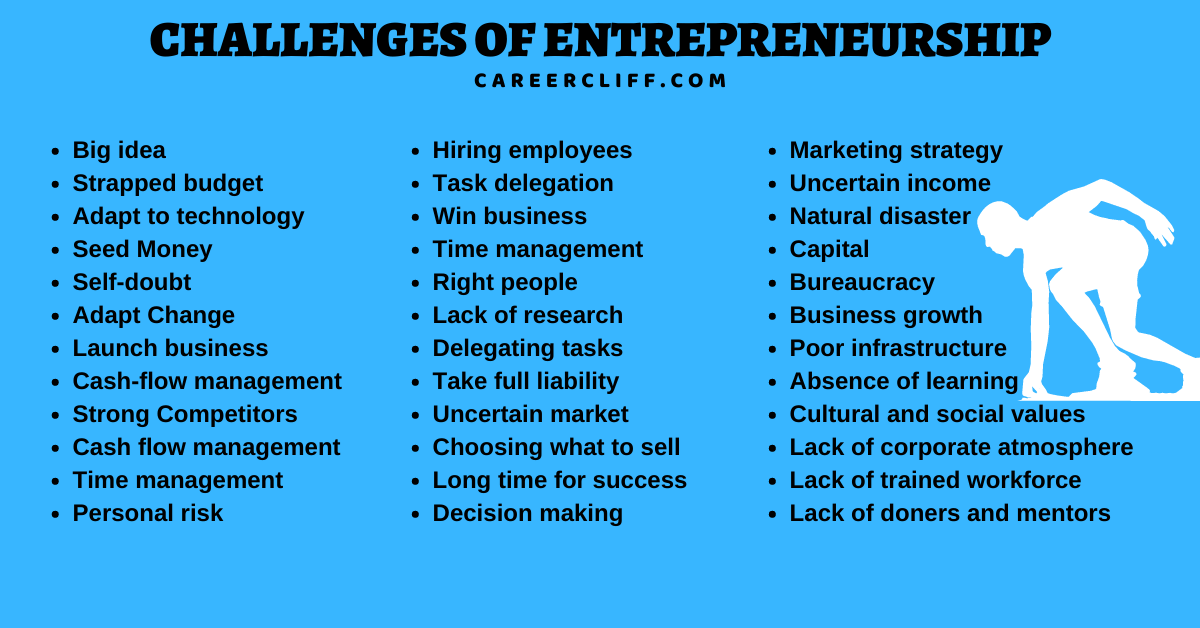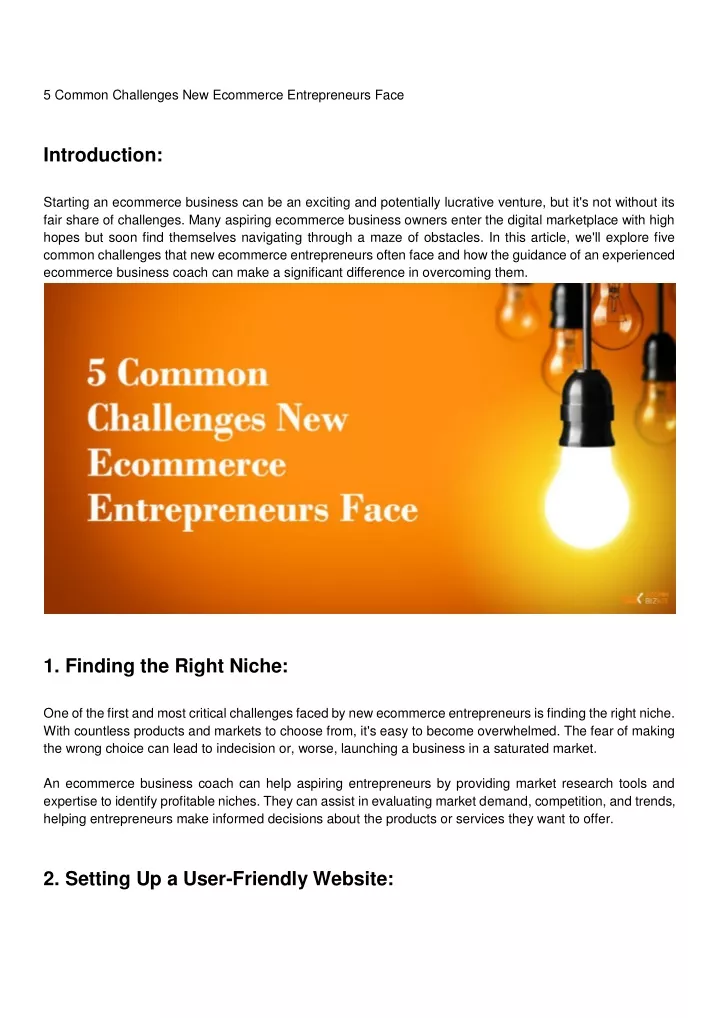Explain The Issues And Challenges That Entrepreneurs Often Face

The entrepreneurial dream, often painted as a path to financial freedom and self-determination, can quickly transform into a daunting gauntlet of challenges. From securing funding to navigating complex regulations, aspiring business owners face a multitude of obstacles that test their resilience and determination. Understanding these issues is crucial not only for those contemplating the entrepreneurial leap, but also for policymakers and support organizations aiming to foster a thriving business environment.
At its core, entrepreneurship is a high-risk, high-reward endeavor characterized by significant uncertainty and constant adaptation. This article delves into the key issues and challenges that entrepreneurs encounter, exploring the multifaceted nature of the entrepreneurial journey and highlighting potential strategies for mitigation.
Financial Hurdles: The Lifeblood of a Startup
Access to capital remains a persistent hurdle for many entrepreneurs, particularly in the early stages of their ventures. Securing funding from traditional sources like banks can be difficult without a proven track record and substantial collateral. Venture capital, while a viable option for some, is highly competitive and often comes with demanding terms and expectations.
According to a 2023 report by the Small Business Administration (SBA), only a small percentage of small businesses successfully obtain bank loans. This disparity disproportionately affects minority and women-owned businesses, who often face additional barriers in accessing capital.
Cash flow management is another critical financial challenge. Many startups struggle to balance expenses and revenue, leading to liquidity crises that can threaten their survival. Careful financial planning, budgeting, and forecasting are essential for navigating this precarious landscape.
Navigating the Regulatory Maze
Compliance with regulations represents a significant burden for entrepreneurs, especially those operating in highly regulated industries. From obtaining the necessary licenses and permits to adhering to labor laws and tax requirements, the regulatory landscape can be complex and overwhelming. The World Bank's Doing Business report consistently highlights the administrative burden that regulations impose on small businesses worldwide.
Keeping up with ever-changing regulations requires constant vigilance and often necessitates the assistance of legal and accounting professionals. For startups with limited resources, the cost of compliance can be prohibitive, hindering their growth potential. Streamlining regulatory processes and providing accessible compliance resources are crucial for supporting entrepreneurial activity.
Market Competition and Customer Acquisition
Entering a competitive market and acquiring customers is a perennial challenge for entrepreneurs. Establishing a unique value proposition and effectively communicating it to the target audience is essential for standing out from the crowd. Market research, branding, and marketing are crucial investments for attracting and retaining customers.
The rise of e-commerce and digital marketing has created new opportunities for reaching customers, but it has also intensified competition. Entrepreneurs must adapt to the ever-evolving digital landscape and leverage online channels effectively to reach their target market. Furthermore, building strong customer relationships and providing exceptional customer service are essential for fostering loyalty and generating positive word-of-mouth referrals.
Talent Acquisition and Management
Attracting and retaining skilled employees is a critical factor in the success of any startup. However, small businesses often face challenges competing with larger companies for talent, particularly in specialized fields. Offering competitive salaries and benefits, as well as creating a positive and engaging work environment, are essential for attracting top talent.
Effective talent management also includes providing opportunities for professional development and growth. Investing in employee training and development can improve productivity, enhance job satisfaction, and reduce employee turnover. Furthermore, fostering a culture of innovation and collaboration can empower employees to contribute their best work.
Work-Life Balance and Mental Health
The demanding nature of entrepreneurship often takes a toll on the personal lives and mental health of founders. Long hours, constant stress, and financial uncertainty can lead to burnout, anxiety, and depression. Maintaining a healthy work-life balance is essential for long-term sustainability.
Entrepreneurs need to prioritize self-care, set realistic expectations, and seek support from mentors, advisors, and mental health professionals. Building a strong support network and delegating tasks effectively can help alleviate stress and prevent burnout.
Looking Ahead: Fostering a Supportive Ecosystem
Addressing the challenges faced by entrepreneurs requires a multifaceted approach involving government, industry, and academia. Policymakers can play a crucial role in creating a supportive ecosystem by streamlining regulations, providing access to funding, and investing in entrepreneurship education.
Industry associations and business incubators can offer mentorship, networking opportunities, and access to resources. Furthermore, fostering a culture of innovation and collaboration can encourage knowledge sharing and support the development of new ventures.
Ultimately, the success of entrepreneurs depends on their resilience, adaptability, and unwavering commitment to their vision. By understanding the challenges they face and providing them with the necessary support, we can foster a thriving entrepreneurial ecosystem that drives innovation, creates jobs, and contributes to economic growth.


















